Product Detail
Product NamePCNA Antibody
Clone No.A6-G11
Host SpeciesMouse
ClonalityMonoclonal
PurificationProA affinity purified
ApplicationsWB, IHC, FC
Species ReactivityHu, Ms, Rt
Immunogen Descrecombinant protein
ConjugateUnconjugated
Other NamesATLD2 antibody cb16 antibody Cyclin antibody DNA polymerase delta auxiliary protein antibody etID36690.10 antibody fa28e03 antibody fb36g03 antibody HGCN8729 antibody MGC8367 antibody Mutagen-sensitive 209 protein antibody OTTHUMP00000030189 antibody OTTHUMP00000030190 antibody PCNA antibody Pcna/cyclin antibody PCNA_HUMAN antibody PCNAR antibody Polymerase delta accessory protein antibody Proliferating cell nuclear antigen antibody wu:fa28e03 antibody wu:fb36g05 antibody
Accession NoSwiss-Prot#:P12004
Uniprot
P12004
Gene ID
5111;
Calculated MW29 kDa
Formulation1*TBS (pH7.4), 1%BSA, 40%Glycerol. Preservative: 0.05% Sodium Azide.
StorageStore at -20˚C
Application Details
WB: 1:1,000-1:2,000
IHC: 1:200
FC:1:100
Western blot analysis of PCNA on different cell lysates using anti-PCNA antibody at 1/1000 dilution. Positive control: Line 1: L929 Line 2 :MCF-7 Line 3:PC12 Line 4:Raji Line 5:F9 Line 6:A549
Immunohistochemical analysis of paraffin-embedded mouse spleen tissue using anti-PCNA antibody. Counter stained with hematoxylin.
Immunohistochemical analysis of paraffin-embedded human tonsil tissue using anti-PCNA antibody. Counter stained with hematoxylin.
Immunohistochemical analysis of paraffin-embedded human stomach carcinoma tissue using anti-PCNA antibody. Counter stained with hematoxylin.
Immunohistochemical analysis of paraffin-embedded mouse large intestine tissue using anti-PCNA antibody. Counter stained with hematoxylin.
Flow cytometric analysis of Hela cells with PCNA antibody at 1/100 dilution (blue) compared with an unlabelled control (cells without incubation with primary antibody; red). Goat anti mouse IgG (FITC) was used as the secondary antibody.
PCNA (Proliferating cell nuclear antigen) is an auxiliary protein of DNA polymerase delta and is involved in the control of eukaryotic DNA replication by increasing the polymerase's processibility during elongation of the leading strand. It induces a robust stimulatory effect on the 3'-5' exonuclease and 3'-phosphodiesterase, but not apurinic-apyrimidinic (AP) endonuclease, APEX2 activities.
If you have published an article using product 48360, please notify us so that we can cite your literature.


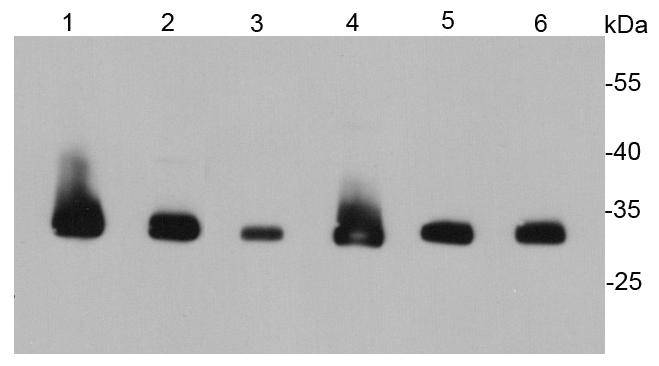
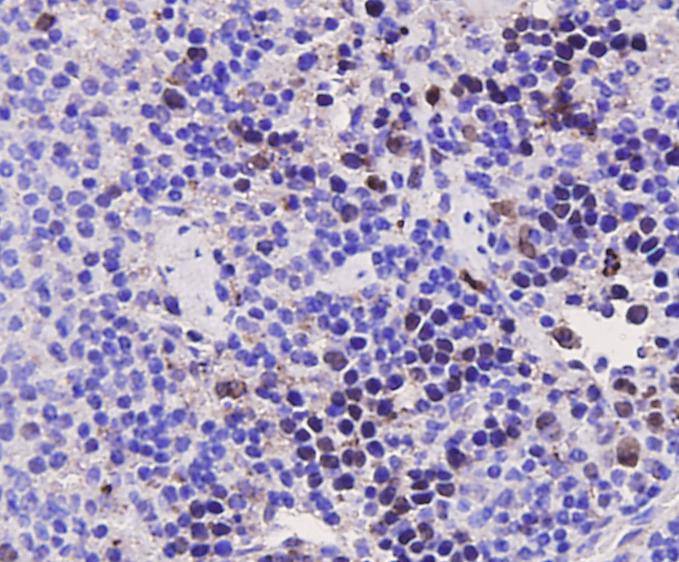
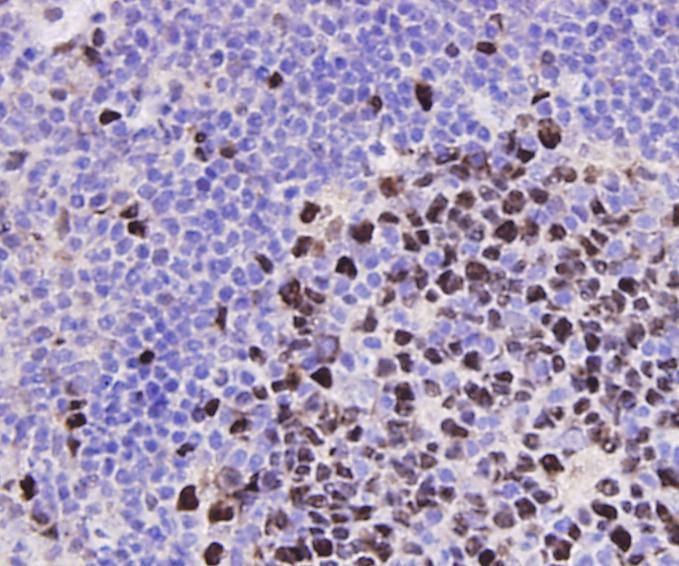
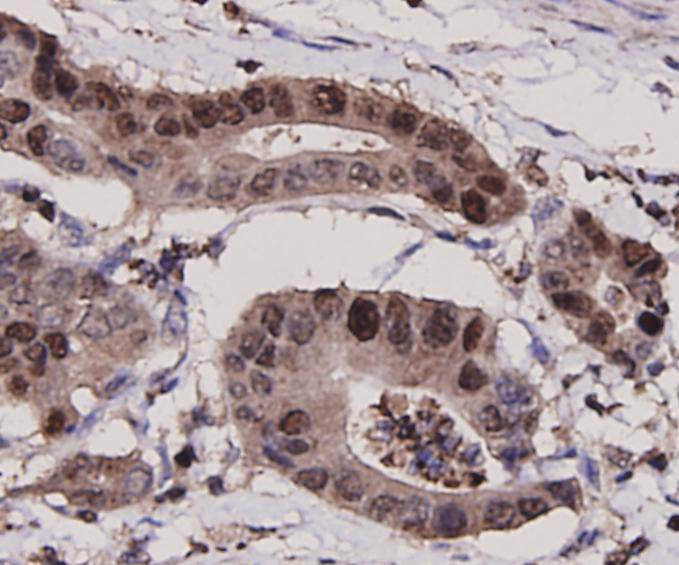
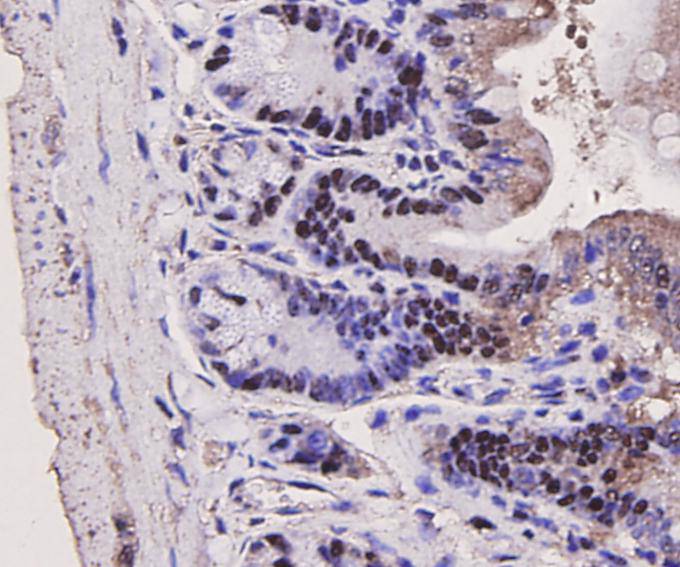
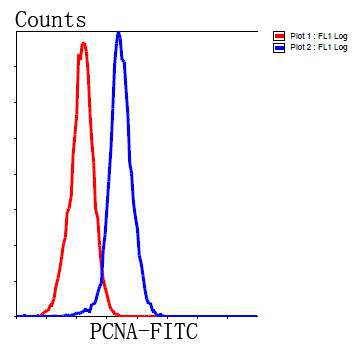
 Yes
Yes



